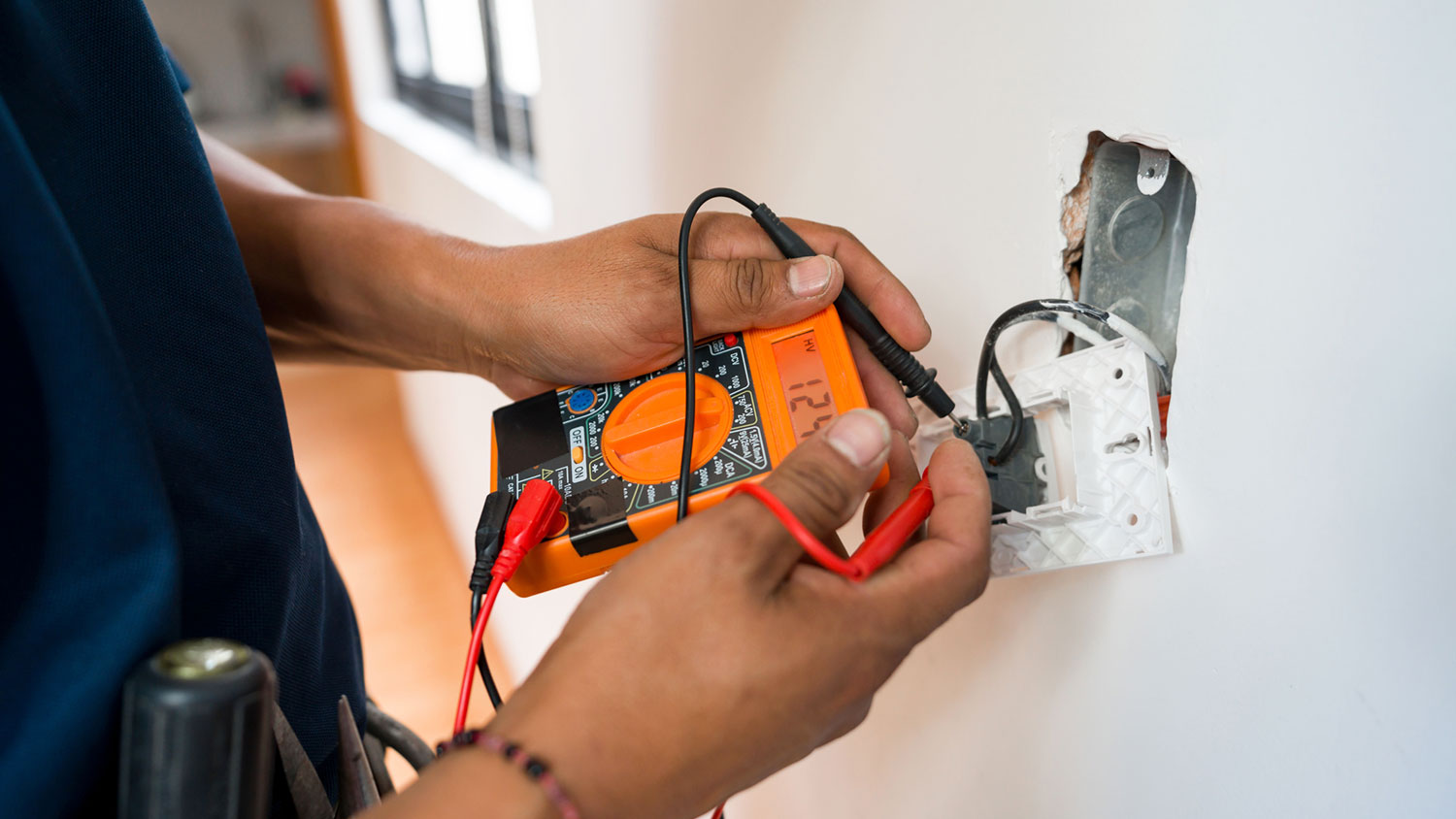
How much does rewire house cost in Columbus? Learn the major factors that impact the price and how it can help increase your home's value.
If you’re doing any sort of electrical work, you’ll want to add this to your cart


A multimeter measures electrical values.
Use it to measure resistance, voltage, and current.
There are analog and digital versions of multimeters.
If you’re a handy homeowner, you probably have a few essential tools on hand at all times, like a hammer, a few screwdrivers, and a power drill. But if you want to take basic electrical measurements and do your own electrical repairs, you would do well to invest in a multimeter.
While you shouldn’t hesitate to contact a local electrician for any major electrical issues, if you simply want to troubleshoot basic problems with your electronics, a multimeter is a must-have. Keep reading to find out more about this useful tool.

A multimeter is a handheld device that’s used to measure electrical voltage and other important values. It consists of a display, a rotary range selector dial, connection ports, and probes. Multimeters are also known as volt-ohm-milliammeters (VOMs) or “multi-testers.”
You can use a multimeter to test electricity in power cords, appliances, wall outlets, and more. These nifty gadgets are capable of many different readings, but there are three basic functions you’ll use most often:
Resistance: Use your multimeter to check an electrical component’s resistor to determine if it’s in good condition or not.
Voltage: Use it to measure both AC (alternating current) and DC (direct current) voltage to help identify any wiring problems and read batteries.
Current: Measure the number of amps flowing through a circuit.
While multimeters vary model by model, they come in two distinct categories: digital and analog. The main difference between the two is that digital meters show a number when you measure, while analog meters display their measurements with a needle that moves over a scale.
In general, a digital meter is ideal for DIYers who plan to use it regularly, whereas an analog meter is a good choice for those who plan to only use the tool once in a while.
In terms of how to use a multimeter, this will depend on what you’re checking or measuring. In general, it’s crucial to check your multimeter is functioning before you use it to avoid electric shock. Always wear protective gear, and be sure to read your specific model’s manual before you attempt to do anything.
Here are some of the most common ways homeowners use multimeters:
To test a battery, plug the meter’s black probe into the common jack and plug the red probe into the jack labeled Volts or +V. (The jacks are usually color-coded, which makes it easier.) Turn the rotary switch to Volts DC. Then, touch the black probe to the negative side of the battery and touch the red probe to the positive side—the battery voltage should read out on the meter’s screen.
To test extension cords, start by unplugging the cord and turning your meter’s dial to the Ohm setting. Plug the red probe into the hole on the socket end of the cord and the black probe into the round prong on the plug end. The meter should make a beeping sound if there’s continuity. Repeat this process with the other sockets and plugs; if you don’t hear a beep on either side, you’ll need to replace the cord.
To test the outlets in your home to ensure that they’re delivering the correct voltage, plug the black probe into the common jack, and plug the red probe into the jack labeled AC voltage or ohms/omega. Place the end of the black probe into the longer (neutral) slot, and plug the tip of the red probe into the shorter (hot) slot. Check the reading on the display screen.
When performing any electrical DIY work, you should always use extreme caution. Don’t perform any work unless you’re confident you can do it safely. When using a multimeter specifically, follow these safety tips:
Never use a multimeter that’s damaged in any way, and don’t touch any damaged wires
Always use insulated gloves and rubber shoes, and don’t touch the metal probes with bare hands
Never touch the probe tips to each other while you’re connected to anything.
Don’t switch your settings while connected to a circuit.
Whether you want to test batteries, check extension cords, or find a faulty light switch (among other uses), a multimeter is an invaluable tool to have on hand. To give you a general idea of cost, digital multimeters at retailers range from $10 to $50.
From average costs to expert advice, get all the answers you need to get your job done.

How much does rewire house cost in Columbus? Learn the major factors that impact the price and how it can help increase your home's value.

How much does adding an electrical outlet cost in Columbus? Get details on average pricing, permit needs, and what affects the total cost.

Did your HVAC pro recently tell you that you may need a new disconnect? If so, start budgeting for the cost to install an AC disconnect here.

A dead outlet is more than an annoyance. It can be a fire hazard, too. Here’s how to deal with a dead outlet to keep your home safe and prevent fire.

Planning out a 50-amp circuit? Selecting the right wire size is crucial. Find out how to determine the right 50-amp wire size.

Grounded circuits are happy (and safe) circuits, but what if you live in an older home with pre-grounded receptacles? Here are ways to ground without a wire.